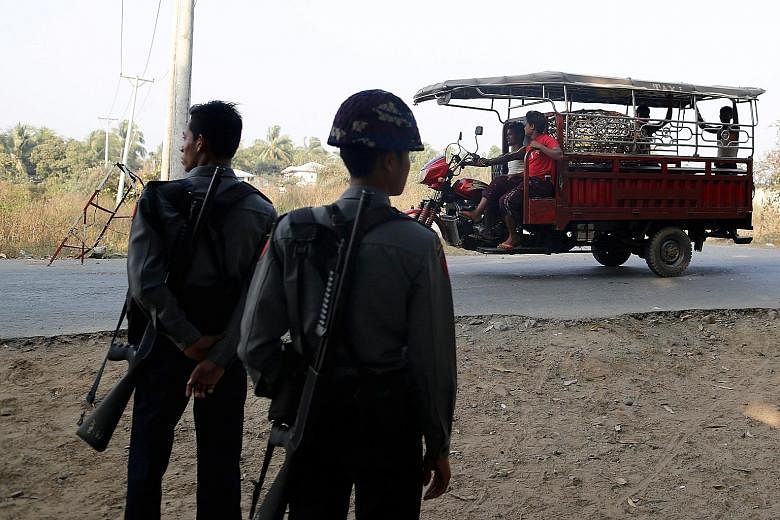SITTWE (Myanmar)/LEDA (Bangladesh) • The emergence of Harakah al-Yaqin, the first Rohingya Muslim insurgent group to organise in Myanmar in decades, signals a dangerous new phase in a crisis increasingly attracting the attention of extremists in Pakistan and the Middle East.
Unknown six months ago, the group has ignited a conflict in Rakhine state that has marred Myanmar's transition towards democracy and confronted leader Aung San Suu Kyi with her biggest crisis yet.
"Our people have been persecuted for 50 or 60 years, so support for the insurgents is there," said Mr Rahim, a teacher from the village of Dar Gyi Zar, who is among more than 70,000 Rohingya who have fled to Bangladesh since the fighting began.
Communal tensions have long festered in north-western Rakhine, where 1.1 million Rohingya Muslims live in apartheid-like conditions, often despised by the Buddhist majority.
Serious ethnic clashes erupted in 2012, but the recent violence is the first sign of a Rohingya insurgency entrenching itself inside Rakhine since at least the early 1990s.
Reuters spoke to around a dozen Rohingya from villages in the conflict zone about the group's activities in their area, and also spoke to a police officer who led the interrogations of several captured insurgents, as well as a military intelligence officer.
Their accounts, which could not be independently verified, shed new light on how the group prepared for its campaign.
They describe how a small group of leaders - including one born to Rohingya parents in Pakistan - recruited several hundred young men, training them clandestinely for months in fields and forests.
In the village of U Shey Kya, adult men were approached early last year and asked to join the group, three residents told Reuters.
Some agreed and took part in training, they said.
"Some villagers were recruited first, then these agents persuaded other people one by one," said one man. "They would go to a grocery store or in the tea shop, they would talk to people."
Mr Mohammed Shah, 26, from Yae Khat Chaung Gwa Son village, said he once came across 30 people training with wooden dummy weapons in a forest clearing near his village. "I support them," he said. "We have been persecuted for decades and they are working to bring us justice."
On Oct 9 last year, Harakah al-Yaqin - Arabic for "Faith Movement" - launched three coordinated attacks on separate police border posts, killing nine officers. The group claimed responsibility for the attacks in videos posted online.
The security operation launched in response by the military has been beset by allegations of mass killings and gang rapes that the United Nations says may constitute crimes against humanity and ethnic cleansing.
The crisis could not come at a worse time for Ms Suu Kyi, whose nearly one-year-old government is contending with renewed ethnic insurgencies elsewhere in Myanmar.
A senior member of Harakah al-Yaqin, Mohammed Noor, was last month sentenced to death for leading one of the three attacks - the first such verdict to be handed down.
Police Captain Yan Naing Latt, the lead interrogator of suspects at the jail in state capital Sittwe, told Reuters that the group's goal was to seize control of the northern part of Rakhine to create a "Muslim democratic state for the Rohingya".
"They trained (locals in) karate and practised firing guns," he said.
While no firm evidence linking Harakah al-Yaqin to extremist organisations has emerged, several Islamist groups - including Al-Qaeda in the Indian Sub-continent, Tehreek-e-Taleban Pakistan and the Islamic State in Iraq and Syria - have raised the Rohingya cause in their publicity materials.
A senior Myanmar military intelligence officer said that Harakah al-Yaqin was still active, with the military expecting further attacks.
REUTERS

